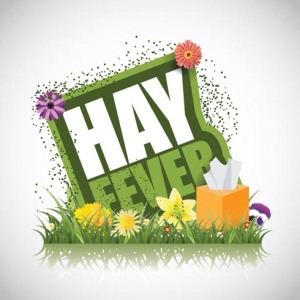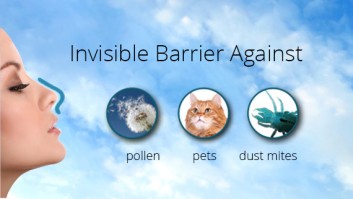Nasal congestion can range from mild, bothersome, then to the point that it delays a day’s usual work. Here are four simple ways to treat symptoms of allergy and to relieve nasal congestion.
Identify and avoid allergens. Not everyone who has allergies is hypersensitive to everything. Know what triggers allergic symptoms. Some are allergic to particular types of food, commonly seafood, eggs, chicken, even milk. Allergies to pollen are also frequently encountered. There is also such a thing as cold-induced urticaria, wherein allergic symptoms show up in lower temperatures. It is important to know the extent of your symptoms, because some of these allergens can have life-threatening consequences and may lead to anaphylaxis.
Make adjustments. Close the windows when it’s high-time for allergies. Shower in the morning and when the day ends to wash off any pollen you might have caught. Switch your diet accordingly. Clean your place regularly to avoid dust piling up.
Go for natural allergy relief. There are a lot of essential oils available to drive bugs away. Citronella, lemongrass, and eucalyptus are just a few of them. Turmeric has been proven to treat symptoms of colds. Fish oil has anti-inflammatory properties which help alleviate allergic symptoms. Explore different natural remedies for nasal congestion.
Consult a doctor and get medications. This is both to prevent any serious adverse event and for intractable sinus congestion relief. Not all medications are perfect for one individual. Consulting a doctor regularly will help you keep track of the symptoms.
Nasal congestion is one of the most common symptoms of allergy and hypersensitivity. Though symptoms may have a common presentation, not everyone is allergic to the same thing. Identifying the cause is the first step. Treatment can vary. As long as you observe your symptoms and explore different but safe and effective treatment, you are good to go.




 surroundings, especially during spring and summer, people who suffer from hay fever always get irritated by its symptoms such as a runny nose and watery eyes. The quickest solution for this is to reach for some antihistamines or decongestants. However, there are a lot of pocket-friendly and
surroundings, especially during spring and summer, people who suffer from hay fever always get irritated by its symptoms such as a runny nose and watery eyes. The quickest solution for this is to reach for some antihistamines or decongestants. However, there are a lot of pocket-friendly and  There is no doubt that hay fever is one of the most common and irritating allergies people suffer from on a daily basis. Hay fever is a seasonal allergy caused by allergens like dust, mold, and pollen. This is why when it’s high season for these allergens; people have no escape from them. All people can do is treat it with as much care as possible.
There is no doubt that hay fever is one of the most common and irritating allergies people suffer from on a daily basis. Hay fever is a seasonal allergy caused by allergens like dust, mold, and pollen. This is why when it’s high season for these allergens; people have no escape from them. All people can do is treat it with as much care as possible. occur anytime of the year.
occur anytime of the year.  ther it be in adults or children, no one likes to experience the inconvenience and suffering brought on by
ther it be in adults or children, no one likes to experience the inconvenience and suffering brought on by  There’s no safe place for a person with allergies. Even your home, which should be your refuge, does not totally offer a dust-free environment. Dust comes from different sources— your carpet’s fibers, particles that are blown from the outdoors, your furniture, and even your dead skin. There’s no running away from it. However, there are several practices you can do to lessen the allergen count inside your home.
There’s no safe place for a person with allergies. Even your home, which should be your refuge, does not totally offer a dust-free environment. Dust comes from different sources— your carpet’s fibers, particles that are blown from the outdoors, your furniture, and even your dead skin. There’s no running away from it. However, there are several practices you can do to lessen the allergen count inside your home. . Take note that these products act as a filter that avoids allergic particles from passing through the nose, and has components that activate when being inhaled. These are also considered as
. Take note that these products act as a filter that avoids allergic particles from passing through the nose, and has components that activate when being inhaled. These are also considered as